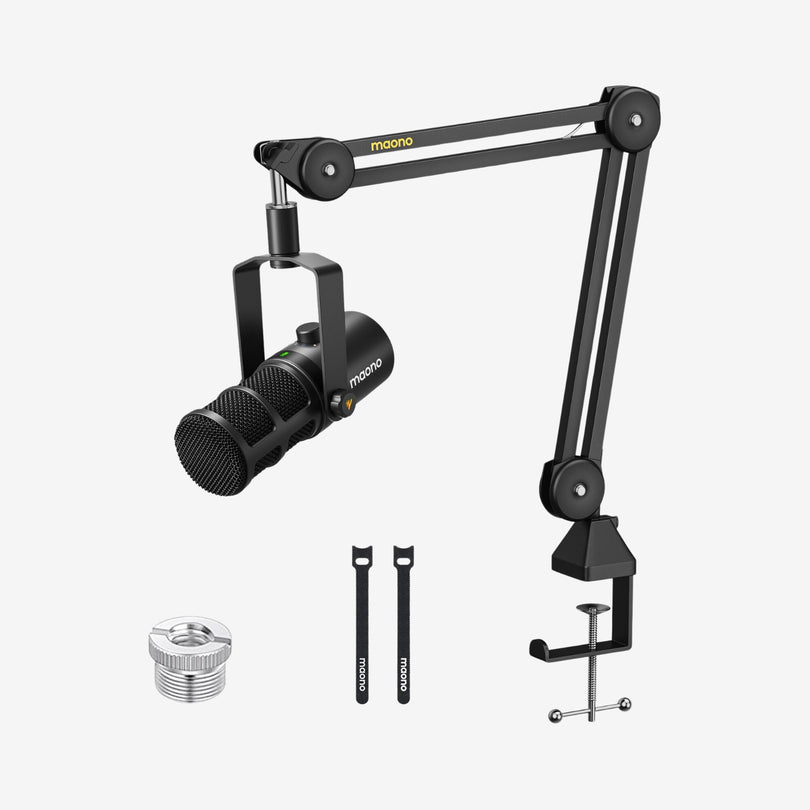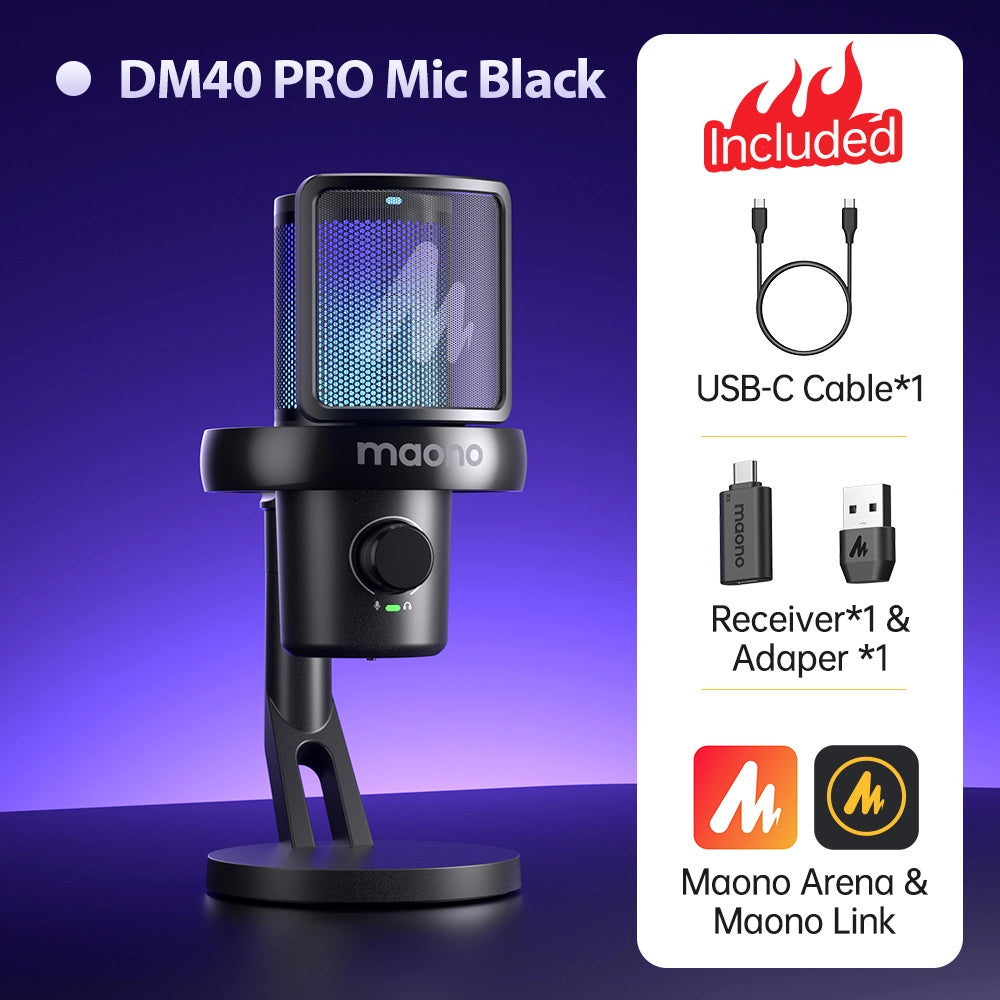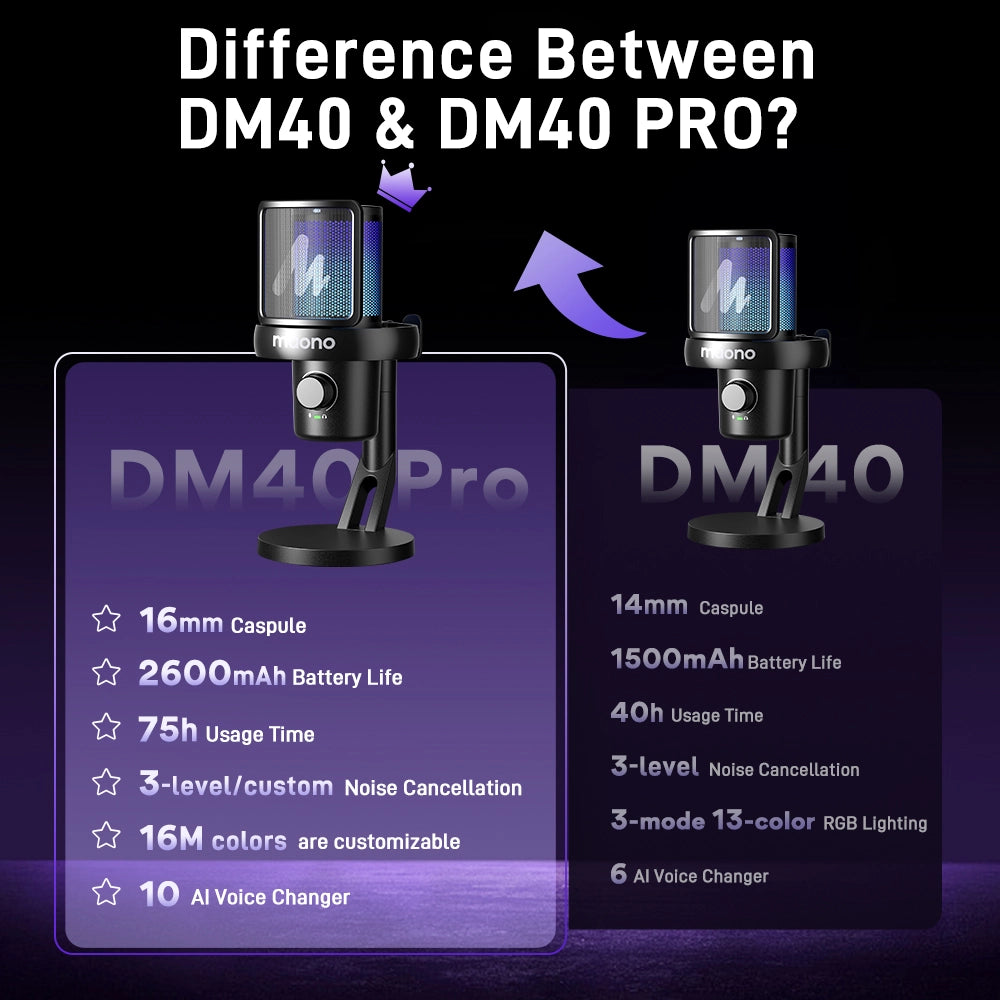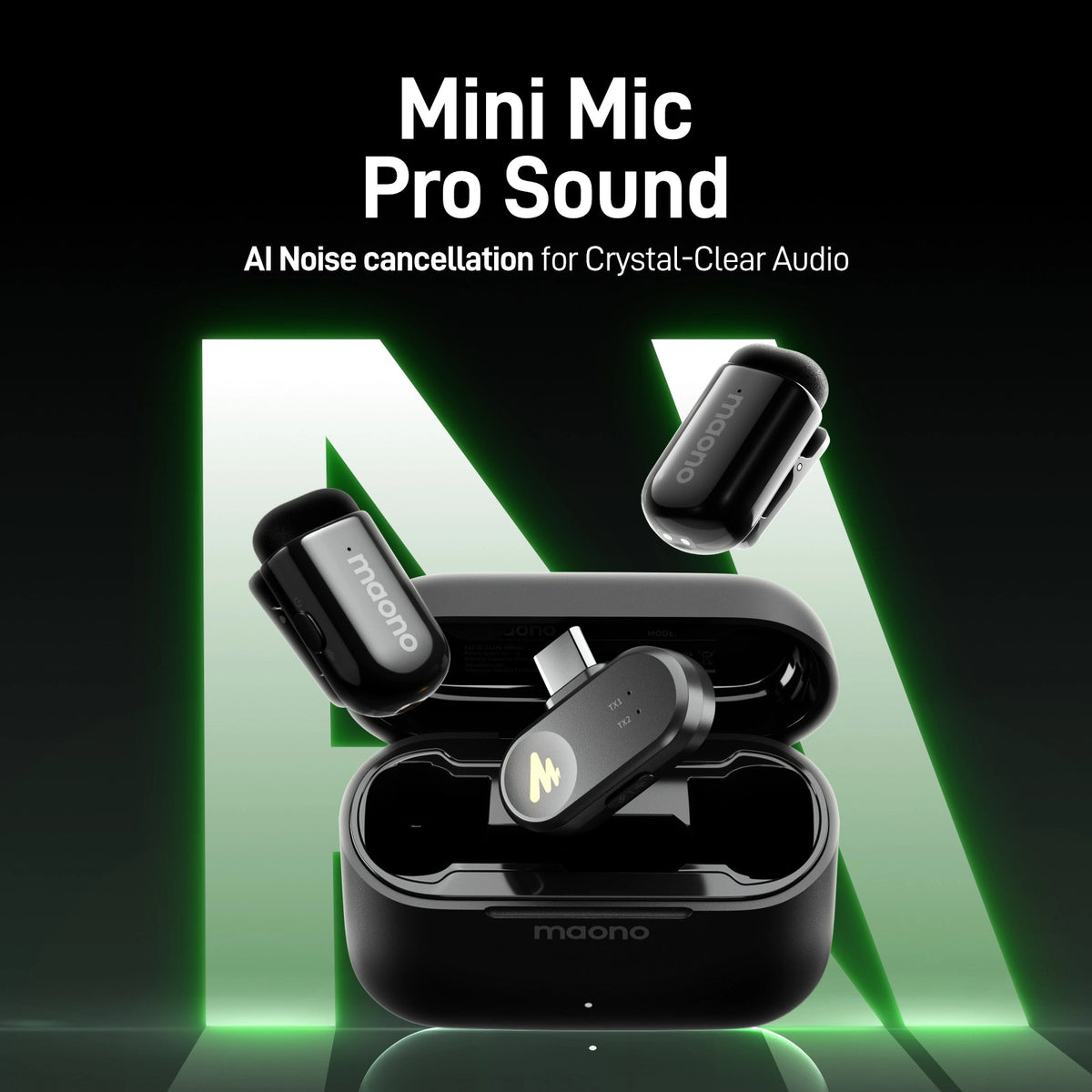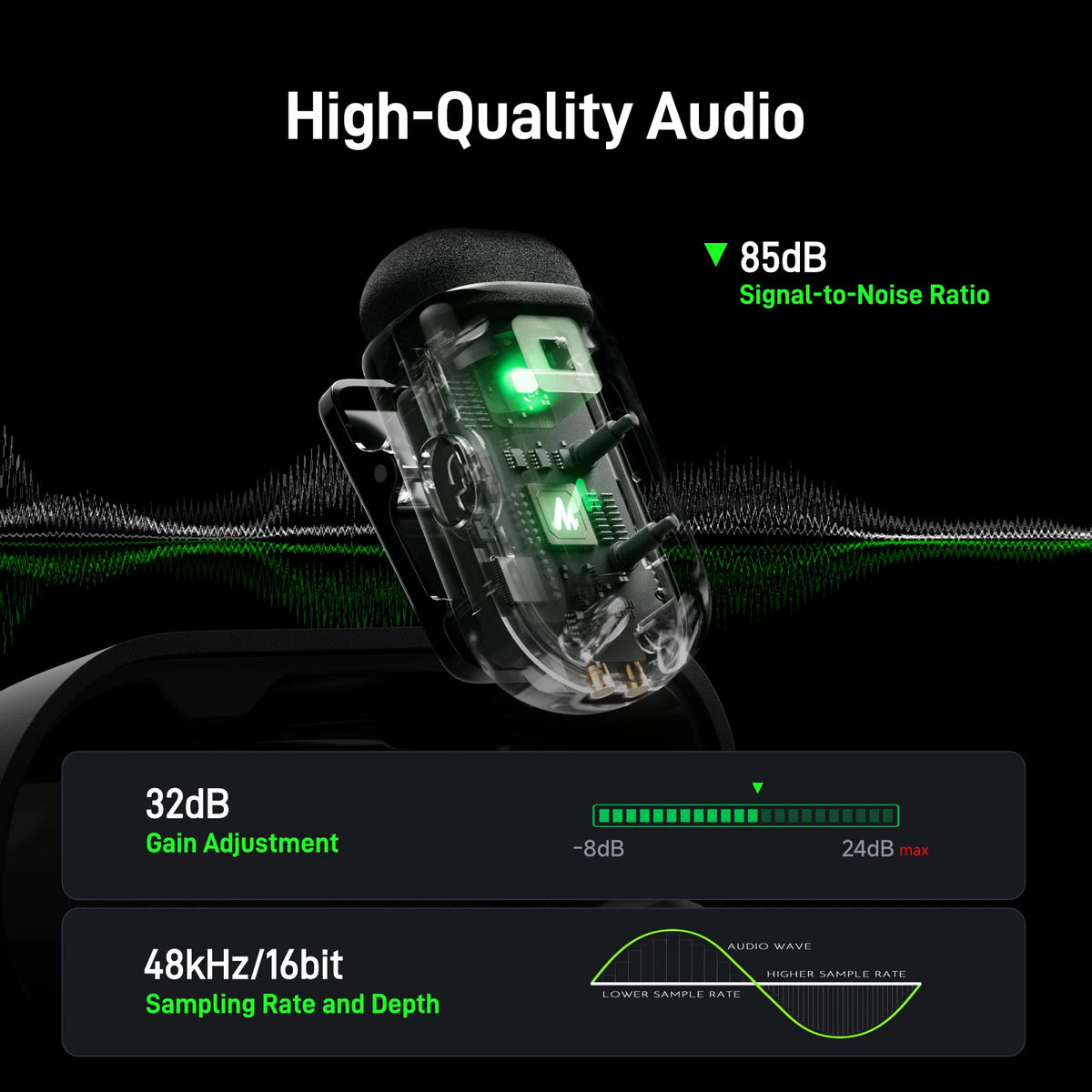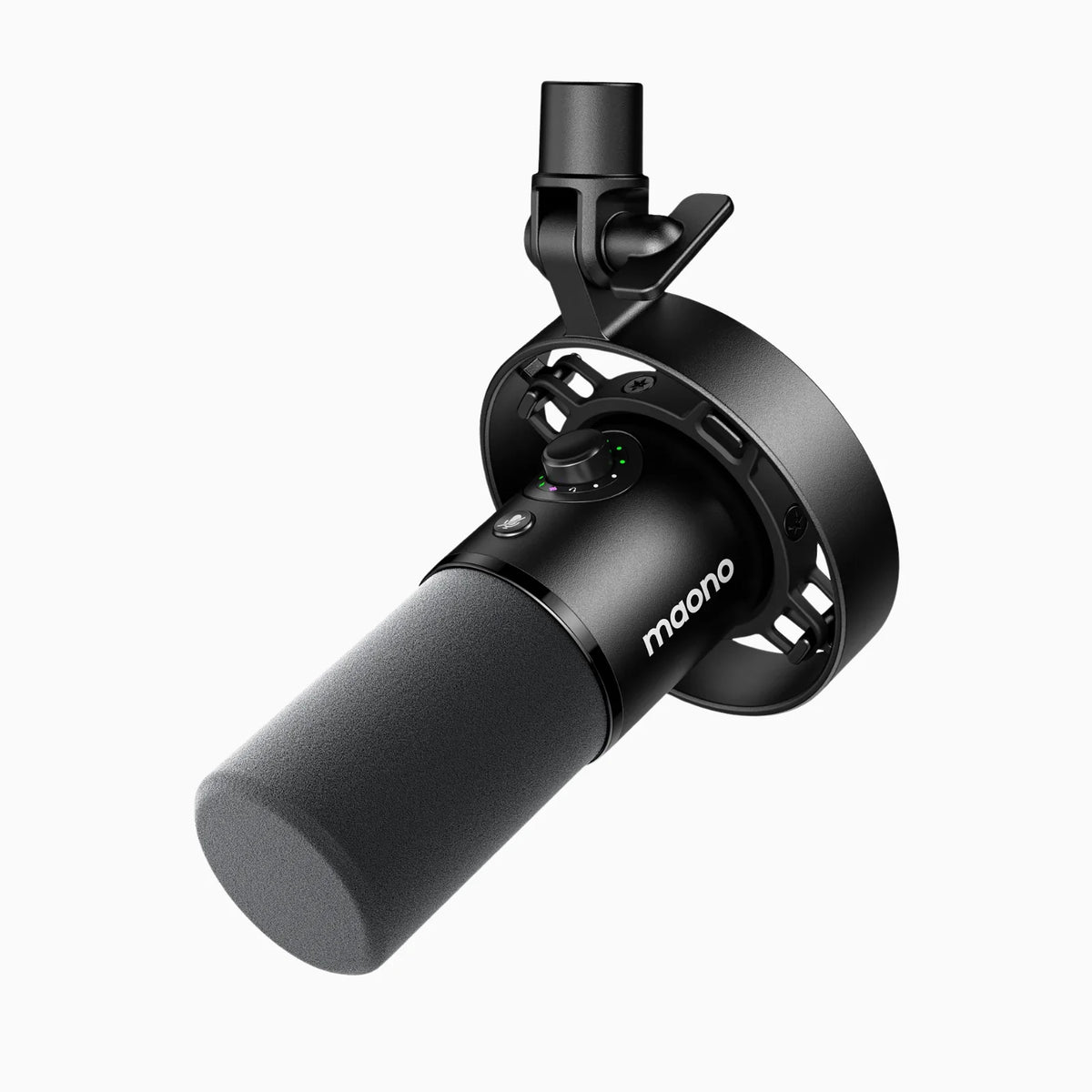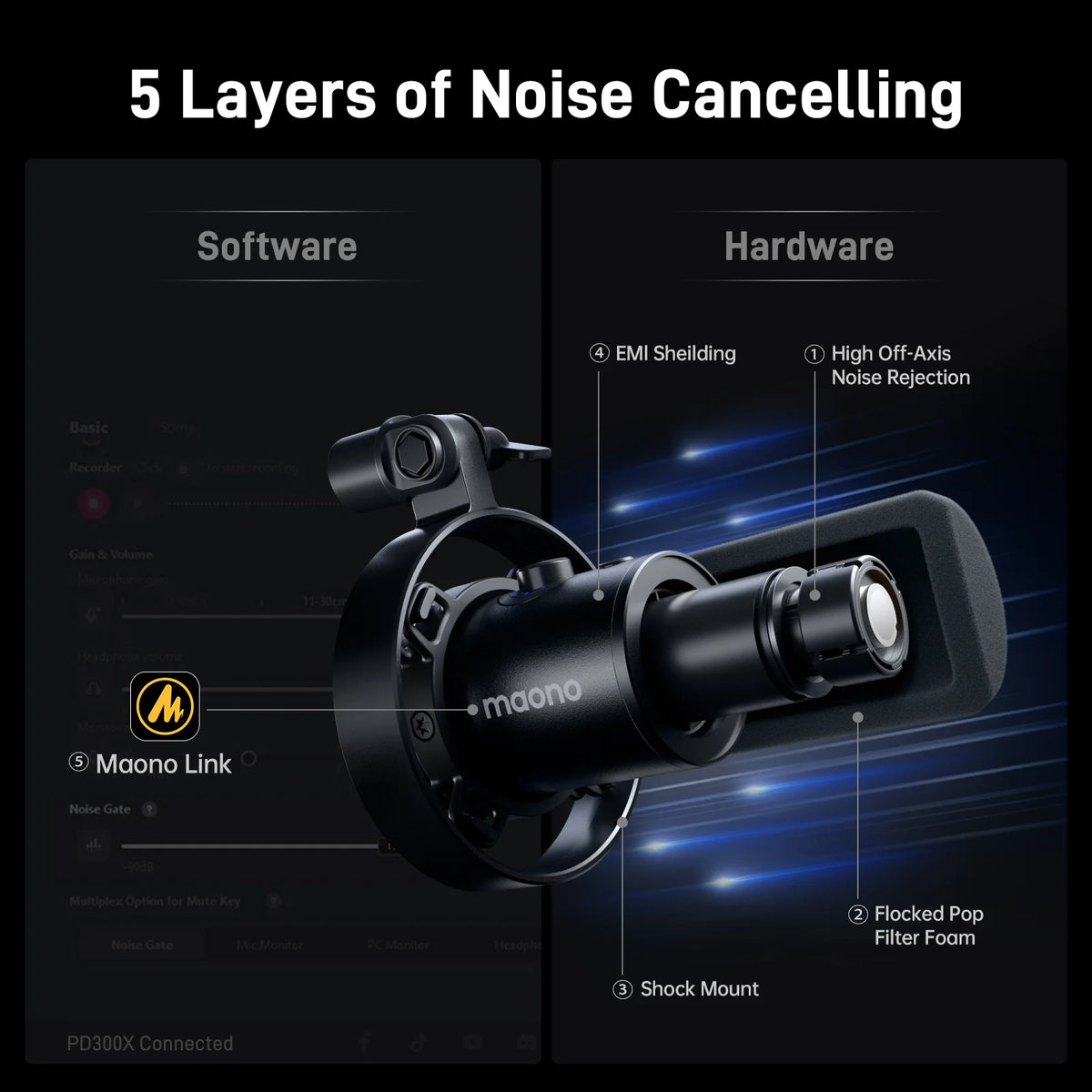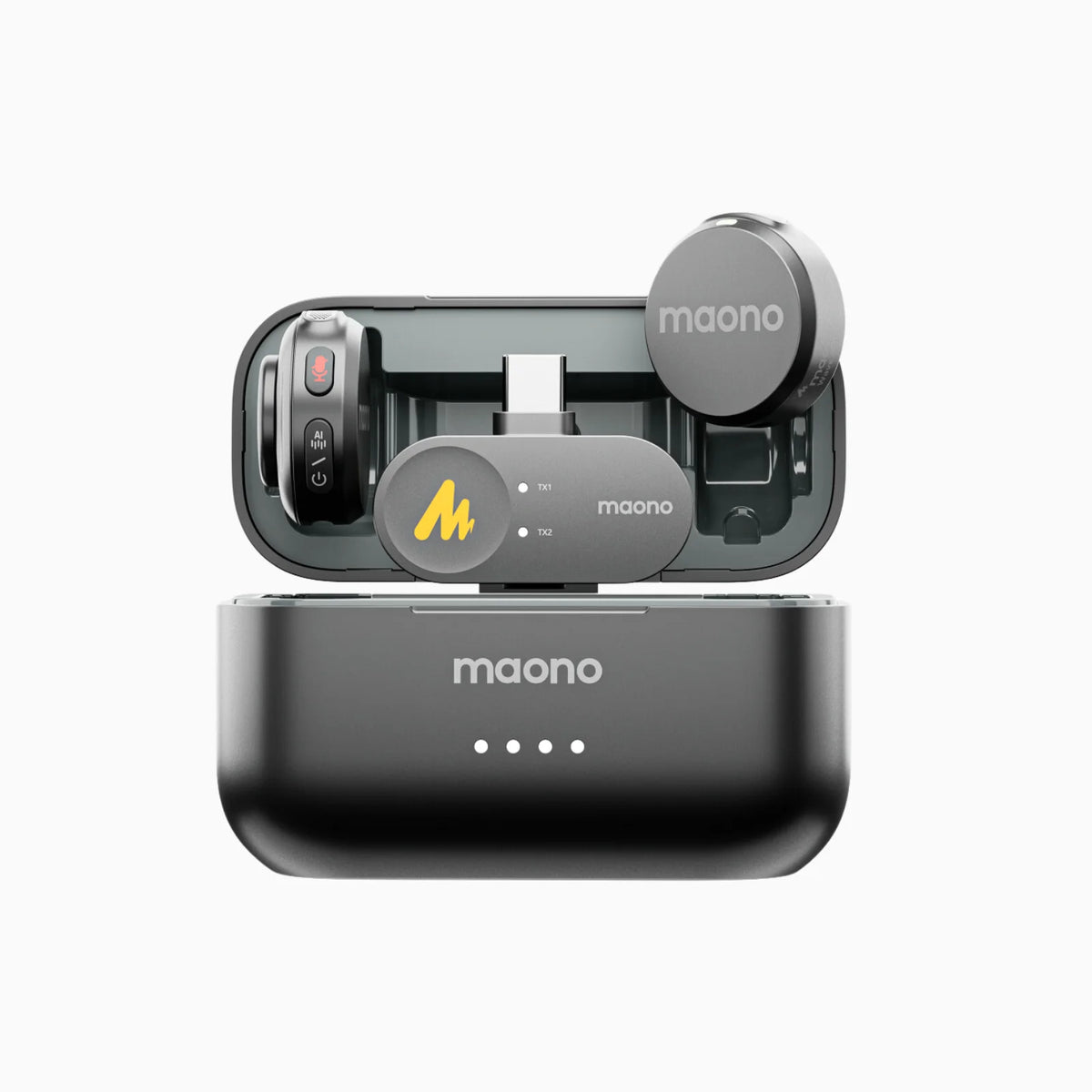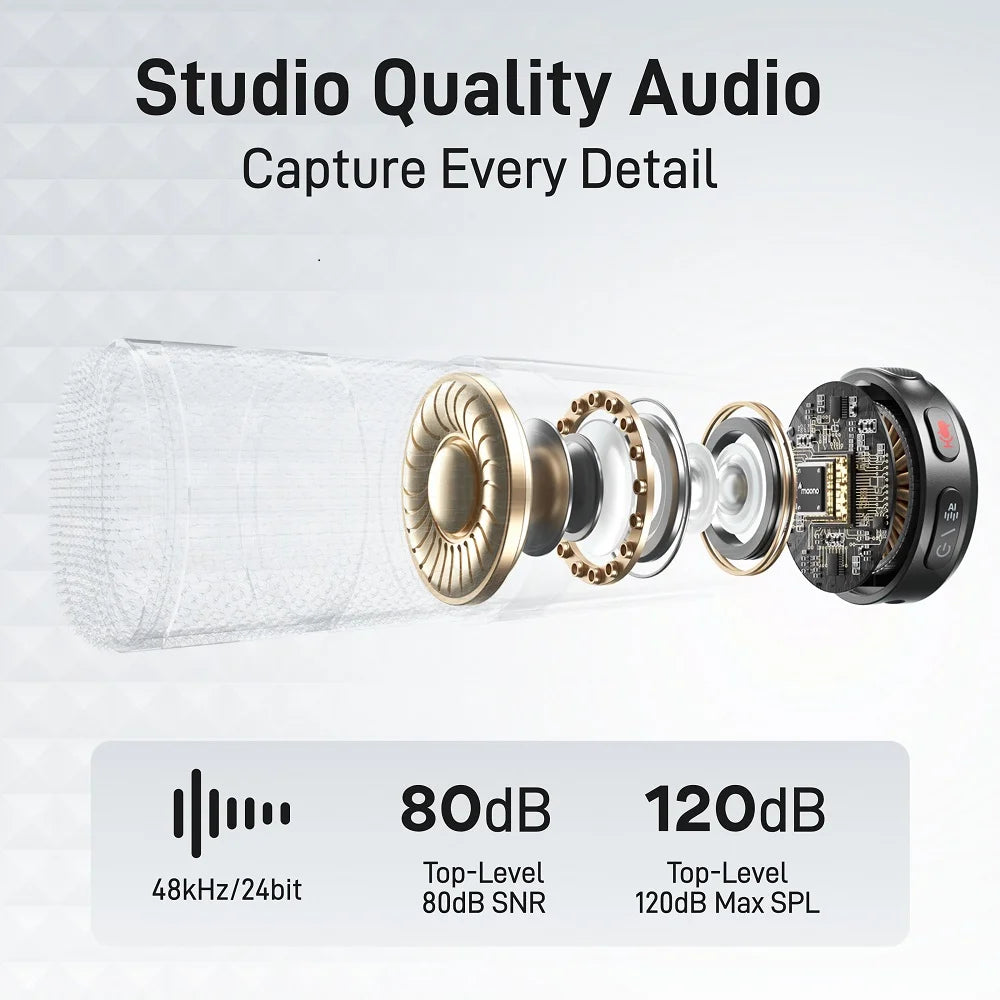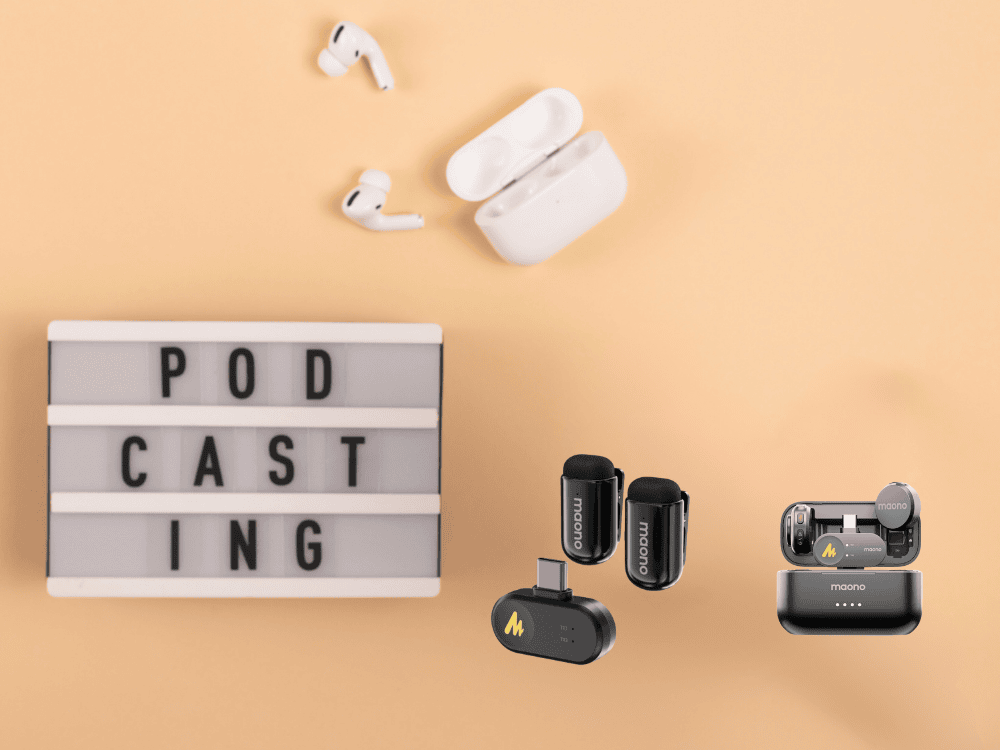Do you want to start your own podcast and you want to make sure you sound like a pro? Read on to learn more about some tips on creating interview podcasts and how to sound professional in your recordings without breaking the bank
Podcasting has become one of the most popular mediums for sharing knowledge, engaging audiences, and creating meaningful conversations. Interview podcasts, in particular, offer a fantastic way to bring fresh perspectives, insights, and stories to listeners. However, creating an engaging interview podcast requires more than just a good idea—it requires strategic planning, the right equipment, and the ability to facilitate meaningful conversations.
One of the important aspects of a successful interview podcast is finding the right guests and ensuring high-quality audio. A noise-canceling microphone can significantly enhance your audio quality, making your podcast sound more professional. In this article, we’ll cover essential tips for finding and inviting engaging guests, preparing for interviews, and choosing the right equipment, including the best noise cancelling microphone for recording interview podcasts.
How to Find and Invite Engaging Podcast Guests
The quality of your guests can make or break your interview podcast. Here are some ways to find and invite engaging guests:
-
Identify your niche
Ensure that potential guests align with your podcast’s theme and audience interests.
-
Network within your industry
Attend events, webinars, and online communities to connect with experts and influencers.
-
Leverage social media
Platforms like LinkedIn, Twitter, and Instagram are excellent for discovering potential guests.
-
Use guest directories
Websites like PodcastGuests.com help podcasters connect with experts who are looking for interview opportunities.
-
Engage with your audience
Ask your listeners who they’d love to hear on your podcast.
-
Reach out professionally
Send a personalized email or direct message highlighting why the guest would be a great fit for your show.
What’s the Best Way to Invite Guests to an Interview?
When inviting potential guests, follow these best practices:
-
Craft a compelling pitch
Keep your message concise, highlight the benefits of appearing on your podcast, and personalize it.
-
Provide necessary details
Include information about your podcast, the audience size, and expected duration.
-
Offer scheduling flexibility
Use scheduling tools like Calendly to make booking an interview easy.
-
Follow up
If you don’t receive a response, send a polite follow-up message.
-
Express appreciation
Show enthusiasm and gratitude when they accept your invitation.
How Can I Prepare My Guests So They Feel Comfortable During the Interview?
A relaxed guest will provide better responses, leading to a more engaging podcast. Here’s how to prepare them:
-
Have a pre-interview chat
A short conversation before the interview helps establish rapport.
-
Share the format and topics
Give your guest a brief overview of what to expect.
-
Ensure Technical Readiness
Confirm their internet connection and recording setup, and recommend they use a good dynamic mic with noise-cancelling features.
-
Encourage authenticity
Let your guests know that natural, conversational responses are best.
-
Offer support
Reassure them that minor mistakes can be edited out.
Should I Send Interview Questions to My Guests in Advance?
While some podcasters prefer spontaneity, providing questions in advance has benefits:
-
It helps guests prepare thoughtful responses. This can lead to more in-depth answers.
-
It reduces anxiety. Guests feel more confident when they know what to expect.
-
It ensures relevance. Guests can tailor their responses to fit the audience.
However, to keep the conversation natural, consider sending a list of topics rather than a strict set of questions.
How Do I Handle Guests Who Give Short or Unengaging Answers?
Not all guests are natural conversationalists. If your guest gives short or unengaging answers:
-
Ask follow-up questions – “Can you elaborate on that?” or “What inspired that decision?”
-
Use storytelling prompts – Encourage guests to share personal experiences.
-
Rephrase the question – Sometimes a different approach can yield a better response.
-
Engage with enthusiasm – A lively and interested host can draw out better responses.
-
Give examples – If a guest struggles, providing an example can help them expand their answer.
Quick Tips for Creating Interview Podcasts
-
Choose a quiet recording environment
Background noise can ruin an otherwise great interview.
-
Use a noise-canceling microphone
Control background noise and use the best microphone for noise cancellation and advise guests to record in quiet spaces. This improves audio clarity and professionalism.
-
Maintain a natural conversation flow
Avoid rigidly sticking to a script.
-
Edit strategically
Cut out filler words and awkward pauses for a smoother listening experience.
-
Promote your episodes
Share on social media, email lists, and podcast directories to grow your audience.
Preparing Questions and Structuring Your Podcast Interview
A well-structured interview makes for an engaging podcast. Here’s a recommended structure:
-
Introduction – Briefly introduce your guest and the episode’s topic.
-
Icebreaker question – Start with a light, engaging question to ease into the conversation.
-
Main discussion – Ask open-ended questions that encourage storytelling and insights.
-
Wrap-up questions – Summarize key points and ask for final thoughts.
-
Call to action – Direct listeners to your guest’s website or social media.
Choosing the Right Equipment for Interview Podcasts
Having the right equipment ensures high-quality audio, making your podcast more enjoyable for listeners. Essential equipment includes:
-
Microphone – A noise-canceling microphone eliminates background noise.
-
Headphones – Prevents audio bleed and enhances monitoring.
-
Audio interface – Improves sound quality when using XLR microphones.
-
Recording software – Options include Audacity, Adobe Audition, and Riverside.fm.
-
Pop filter – Reduces plosive sounds (e.g., “p” and “b” sounds).
Best Microphones for Recording Interview Podcasts
A great interview podcast demands clear audio. The Maono PD300X and Maono PD200X are excellent choices for podcasters due to their high-quality sound, durability, and affordability. These dynamic mics are designed to minimize background noise and deliver rich, clear vocals.
Maono PD300X: Best for Studio & Remote Interviews
-
Type: Dynamic microphone with USB/XLR connectivity.
-
Noise Cancellation: Excellent built-in noise reduction for crisp voice clarity.
-
Notable Features:
-
Built-in pop filter to reduce plosive sounds.
-
High sensitivity for detailed vocal capture.
-
Compatible with PC, Mac, and audio interfaces.
-
Why It’s Great for Podcasts: The Maono PD300X captures rich vocals while minimizing background noise, making it perfect for professional interviews.
Maono PD200X: Ideal Budget Option
-
Type: Dynamic USB/XLR microphone.
-
Noise Cancellation: Excellent noise rejection to eliminate ambient sounds.
-
Notable Features:
-
LED indicator for real-time monitoring.
-
Sturdy metal construction for durability.
-
Wide frequency response for natural-sounding voices.
-
Why It’s Great for Podcasts: The Maono PD200X delivers studio-quality audio without breaking the bank, making it a solid choice for beginner and pro podcasters alike.
Both models ensure clear and professional audio, giving your interview podcast a polished and engaging sound.
What is the Best Microphone for Recording Interview Podcasts?
A noise-canceling microphone is essential for clear, professional audio. Here are some top recommendations:
-
Maono PD300X - with 5-level noise reduction microphone
-
Shure SM7B – Excellent noise rejection, great for professional setups.
-
Rode NT-USB – A high-quality USB microphone with great clarity.
-
Audio-Technica ATR2100x-USB – Affordable, dynamic mic with excellent background noise reduction.
-
Blue Yeti X – Versatile USB mic with multiple recording modes.
-
Samson Q2U – Budget-friendly mic that works with both USB and XLR.
How to Keep Conversations Flowing Naturally?
-
Listen actively – Respond naturally instead of sticking strictly to pre-planned questions.
-
Use bridging phrases – “That’s interesting, tell me more about…”
-
Be genuinely curious – Engage with the guest’s responses to encourage deeper discussion.
-
Pace the conversation – Avoid interrupting but guide the discussion forward.
-
Encourage storytelling – Personal stories are more engaging than generic answers.
Conclusion
Creating and running a successful interview podcast involves careful planning, engaging conversations, and high-quality audio. Finding the right guests, preparing them properly, structuring interviews effectively, and using a noise-canceling microphone can significantly improve the quality of your podcast. By implementing these tips, you can create engaging, professional, and high-quality interview podcasts that captivate your audience and keep them coming back for more.
Hopefully, this guide will help you find engaging guests, prepare effectively, and choose the right microphone noise cancelling technology for professional-quality recordings.
With the right approach and equipment, your podcast can grow, attract more listeners, and become a trusted source of valuable conversations. Happy podcasting!


